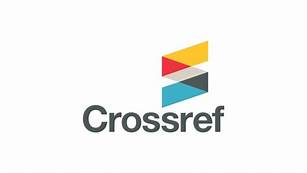Import
The Impact of Customs Electronic Payments on Import Facilitation in Bangladesh
Md. Tarek Mahmud
DOI: https://doi.org/10.58718/policyanalysis1120231
Keywords: Trade facilitation, customs electronic payments, customs clearance time, TFA, cost of doing business.
Abstract
The rapid increase of international trade evolves the necessities of trade facilitation. In international trade, delay or additional time consumption is often interpreted as the cost of trade which is a hindrance to trade facilitation. To minimise the hindrances of trade facilitation many initiatives have been introduced by different Customs Administrative Authorities across the globe. Customs electronic payment is one of those key initiatives to reduce customs clearance time and facilitate trade. This is also considered as one of the international best practices which can influence trade facilitation from various aspects e.g., reducing time and costs, increasing trade volume, ensuring transaction security, etc. This paper examines the impact of electronic payments on trade facilitation in Bangladesh by using the difference-in-differences estimator to analyse changes in the duration of payment and trade volume both in quantity and value based on the ASYCUDA World data from 2014 to 2020. The results show that there is a significant reduction of payment duration due to the use of customs electronic payments over traditional payments. On the other hand, I found that the trade volume in value for electronic payments user firms appears to increase, whereas the trade volume in quantity decreases. This suggests that the government of Bangladesh can consider initiatives to attract the importer or agents to use the electronic payments for the reduction of clearance time to facilitate trade.
References
1. Ahmad, Manzoor. 2010. Reforming customs clearance in Pakistan: Investment Climate in Practice. 1-8. Washington, DC, World Bank Group. Retrieved on 11 January 2021 from h t t p s ://o p e n k n owl edg e .wo r ldb a n k . o r g / b i t s t r e am/handle/10986/10503/598230NEWS01pu158300B0Pa kistannote9.pdf sequence=1&isAllowed=y
2. Fishman, Raymond, and Shang-Jin Wei. 2004. “Tax rates and tax evasion: Evidence from ‘missing imports’ in China.”, Journal of Political Economy. 112 (2): 471- 496. Grainger, Andrew. 2007. “Customs and trade facilitation: From concepts to implementation.” World Customs Journal. 2 (1): 17- 30.
3. Hossain, Mohammad Akbar. 2018. “WTO TFA: Preparation of Bangladesh Customs, customs modernisation & international trade.” Bangladesh Customs Initiatives on Implementation of WTO Trade Facilitation Agreement (Newsletter), National Board of Revenue, Bangladesh.
4. Khandker, Shahidur R., Gayatri B. Koolwal, and Hossain A. Samad. 2009. Handbook on impact evaluation: quantitative methods and practices (English). doi: 10.1596/978-0-8213-8028-4. Retrieved from http://documents.worldbank.org/curated/en/650951468335456749/Handbook-on-impact evaluationquantitative-methods-and-practices
5. National Board of Revenue, Bangladesh. 2017. National Board of Revenue, Bangladesh. Retrieved from National Board of Revenue, Bangladesh: http://customs.gov.bd/files/e-PaymentQuickReference.pdf
6. National Board of Revenue 2020. E-payment er maddhome sulka karadi, fees, charges, porishodh badhdhotamulokkoron [Compulsory use of e-payment for paying duties, fees, and charges]. Government order number: 08.01.0000.067.10.003.19-185(21), date: August 31, 2020. Retrieved on 23 January 2021 from http://nbr.gov.bd/uploads/publicnotice/IMG_20200910_0004.pdf
7. Nizeyimana, Christian, and Luc De Wulf, “Rwanda Electronic Single Window supports trade facilitation.” World Customs Journal. 9 (2): 73- 84.
8. Organisation for Economic Co-operation and Development. 2013. Trade facilitation indicators: The potential impact of trade facilitation on developing countries’ trade. OECD working paper. Retrieved from Organisation for Economic Co-operation and Development: https://www. oecd.org/officialdocuments/publicdisplaydocumentpdf/?cote=TAD/ TC/WP(2012)24/FIN AL&docLanguage=En
9. Popa, Ioan, Mihaela Gabriela Belu, Dorel Mihai Paraschiv, and Ana Maria Marinoiu. 2015. “Best Practices in Customs Procedures.” Amfiteatru Economic. 17 (40): 1095-1107. Uddin. Jasim, “NBR to make customs duty e-payment mandatory.” 2020. The New Age (Dhaka), Nespaper article. Retrieved from www.newagebd.net: https://www.newagebd.net/article/114993/nbr-to-make-customsduty-e-payment mandatory
10. Uzzaman, Md. Almas and Mohammad AbuYusuf, “The role of customs and other agencies in trade facilitation in Bangladesh: Hindrances and ways forward.” World Customs Journal. 5 (1): 29- 42.





